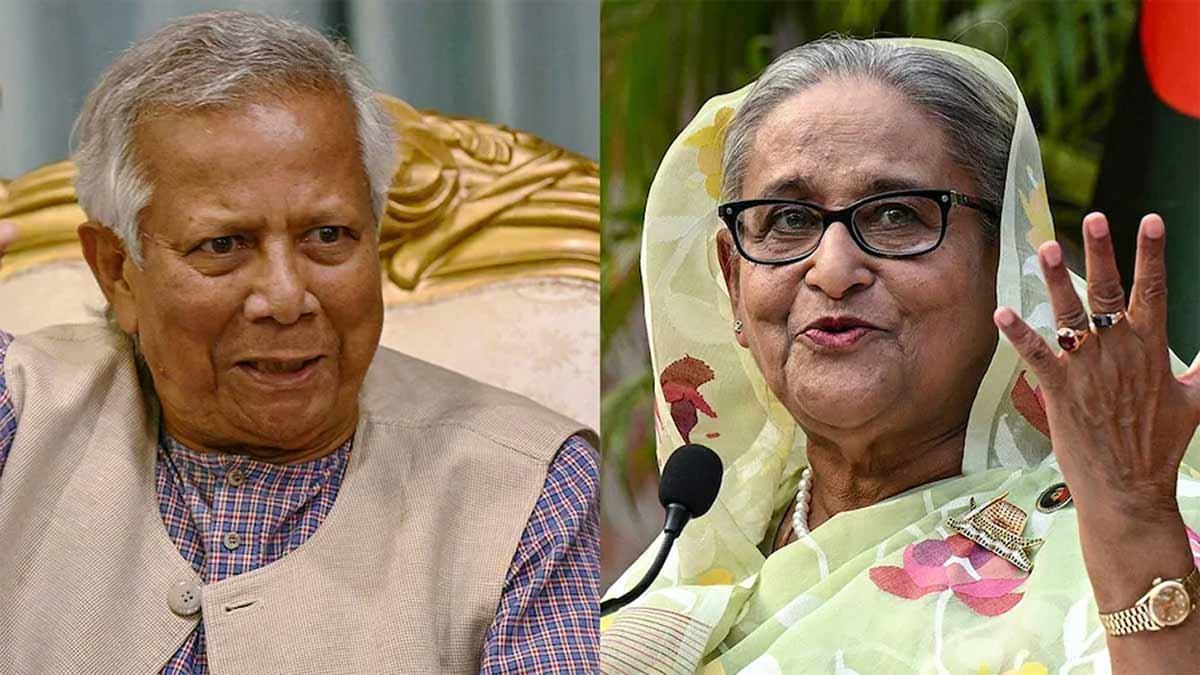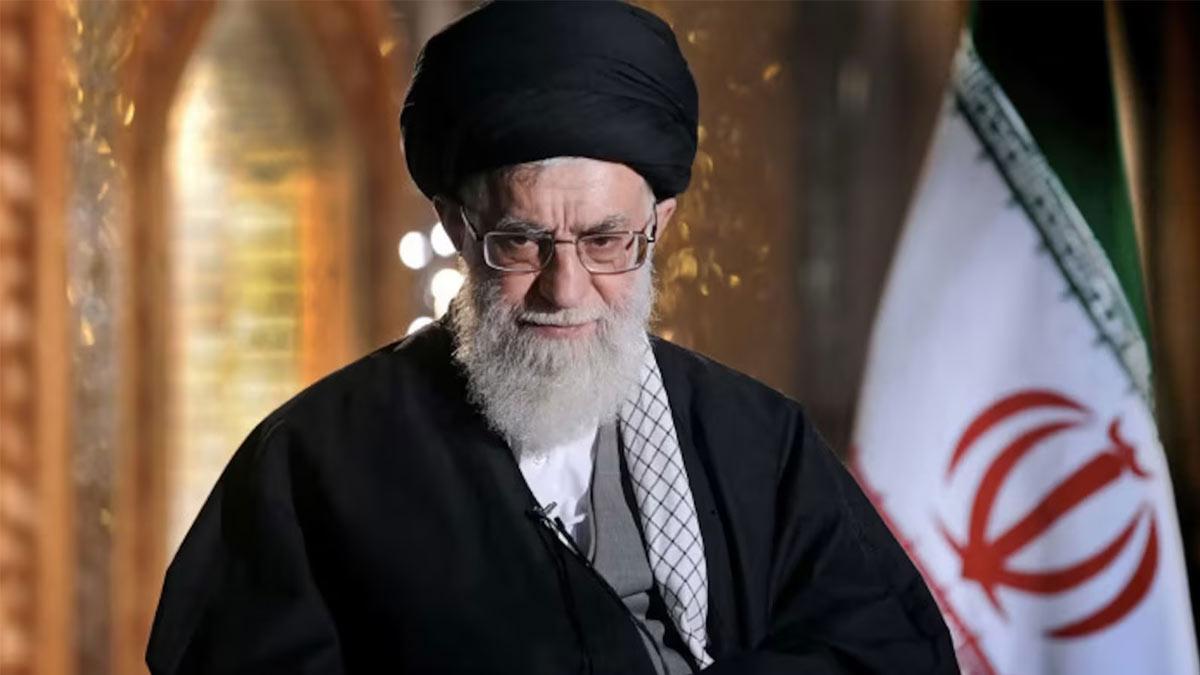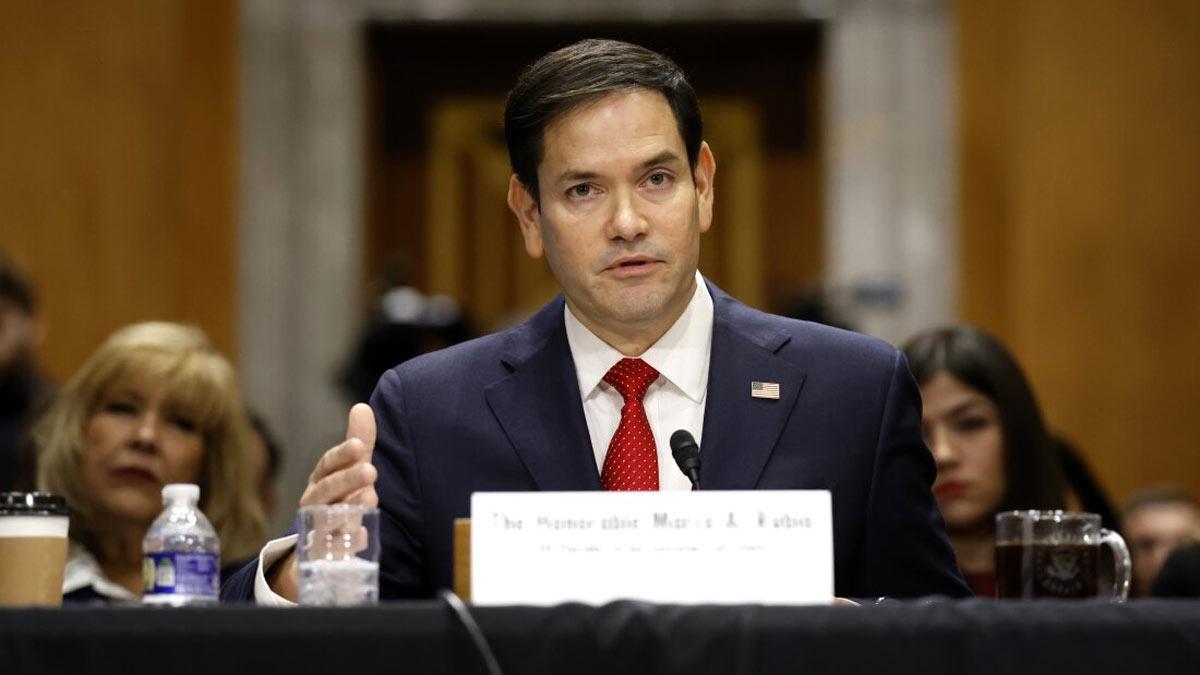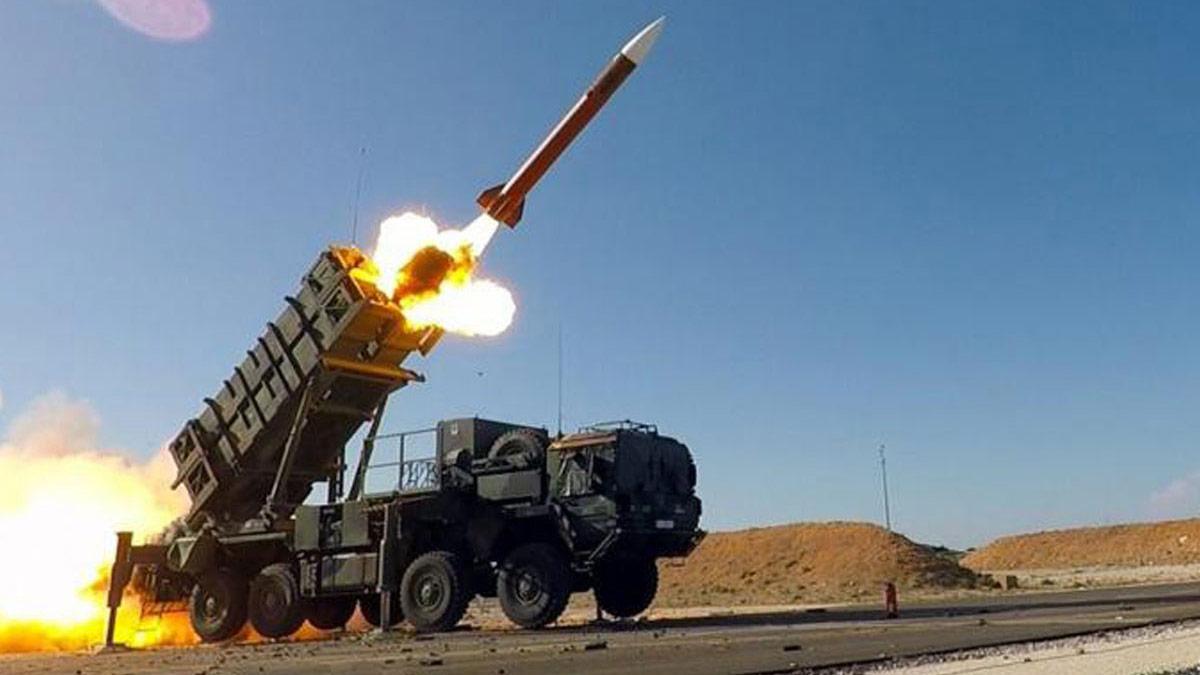In an impassioned eight-minute virtual address, deposed Bangladeshi leader Sheikh Hasina strongly condemned the caretaker government led by Muhammad Yunus, calling him a "self-centered loan shark" who, she charged, conspired with foreign powers to destabilize the nation in order to enrich himself.
Hasina, who fled Bangladesh last August and has been in India, utilized the platform to also ask questions about the circumstances under which student protester Abu Sayeed, a central leader in the pro-democracy movement, died.
Attributing her survival and ongoing political struggle as part of God's will, Hasina, recently, announced plans to go back to Bangladesh, stating, "This is why Allah has kept me alive."
On Sunday, she addressed her supporters directly, blaming Yunus for systematically erasing the country's historical identity—particularly the role of her party, the Awami League, in the liberation movement.
"Everything symbolic of the freedom struggle is being destroyed," Hasina stated. "Mukti Joddhas (freedom fighters) are being demeaned. We had set up Mukti Joddha Complexes in every district to commemorate their names, and now the very buildings are being torched. Can Dr Yunus justify this?" she asked, sending a stern warning: "If you play with fire, you will get burned."
Her words had no whiff of subtlety or diplomatic caution. More than six months after her ouster, she redoubled allegations of a plot hatched with foreign support to disassemble Bangladesh's sovereignty.
"Power-grabbing, money-minded man masterminded a foreign conspiracy, sabotaging the nation with foreign funding," she alleged. Hasina also blamed political adversaries, such as the Bangladesh Nationalist Party (BNP) and Jamaat-e-Islami, with committing politically motivated murders and harassing Awami League activists.
BNP, now controlled by theiling former Prime Minister Khaleda Zia, is still the sole major political opposition to Awami League. Zia's health condition does make a return to politics less likely, despite the party regaining assertiveness after Hasina's removal from power.
Hasina also accused the new government of unleashing an economic meltdown. "The collapse of the Awami League government has sent shockwaves across the nation's industries. Thousands of factories have shut down. Party members' properties have been burnt. Whole industries—hotels, hospitals—are being destroyed," she said.
She blamed the caretaker government for harassing leaders of her party on trumped-up charges. "Our workers are being held responsible for deaths caused by vandalism. But those responsible for instigating riots, burning down police stations, and murdering police officers are still out there. Our leaders can no longer even remain in their houses—everything has crumbled.
Addressing Yunus specifically, she said his ambition was clouding his eyes. "This man knows fully well what the end results will be of what he is doing. He's taking Bangladesh on a path to ruin in his lust for power. He is nothing less than a fascist terrorist."
"Murder by Design": Hasina on Abu Sayeed's Death
Abu Sayeed, student and protest leader, was killed during a big agitation about government job quotas a few days before Hasina's ouster. His death touched off competing stories by the police and protesters, with the student movement becoming more militant afterward. Sayeed would later be acclaimed by many as a martyr and became synonymous with alleged government violence.
In February, the United Nations released a report indicating that Sayeed was a victim of "deliberate extrajudicial killing" by police. The report also mentioned evidence of the use of 7.62 mm bullets by security forces.
Hasina, on her part, denied this, claiming that only rubber bullets had been used by the police. "Abu Sayeed was hit by a rubber bullet. Metal rounds were not used by the police. He was killed when his head was smashed with a stone in the confrontation. The police were allowed to protect themselves—where then did they get the 7.62 mm bullet? Who took that sort of firearm to the demo?" she posed.
As per her, one such official who attempted to trace the origin of the bullet was immediately removed from service. "That official had recognized the ammunition and was going to trace down civilians who owned such weapons. But Yunus got him removed—because he knew the truth and had something to hide," she claimed.
Hasina further added that she had formed a judicial investigation in July to investigate protester fatalities, but alleged Yunus hindered its work.
"Now, I invite them to dig out Sayeed's body and send it for forensic testing. It will reveal these murders were orchestrated as part of a wider plot. None of us, or the Awami League, or the police did it. Indeed, our police were victims. The culprits were covered by the new regime's impunity. This was Yunus's masterplan," she declared.
"A Nation in Crisis"
Hasina decried the deteriorating situation under the caretaker administration, stating that the future of the country was in jeopardy. "Our finest doctors and surgeons are being sacked. Political operatives are in police uniforms without any justification. There's total disregard for proper protocol. Meanwhile, the BNP is looting resources. Farmers are in despair, workers are jobless, and the common people are suffering. This cannot continue," she asserted.
Hasina has persisted in expressing her opinions during exile through the social media platforms of the Awami League. Bangladesh has allegedly pushed India to extradite her. In a recent summit with Indian Prime Minister Narendra Modi, Yunus is reported to have charged her with destabilizing Bangladesh and asked India to keep her under control and prevent her from issuing inciting remarks.
India had previously complained of so-called atrocities against Bangladesh's Hindu minority, which Dhaka described as exaggerated and mostly invented.
Read also| Indian Markets End Week Higher as Tariff Worries Recede
Read also| India's Forex Reserves Climb to $676.3 Billion, Marking Fifth Consecutive Weekly Gain


















